On the morning of October 26, the 2025 Academic Annual Meeting of the National Tianyuan Mathematics Central China Center (hereinafter referred to as "the Center") was grandly opened at Wuhan University. Co-hosted by the Center, Wuhan University School of Mathematics and Statistics, and Wuhan Institute of Mathematics and Intelligence, the meeting featured three main thematic sections: "Plenary Distinguished Reports," "Plenary Invited Reports," and "Young Scholars Forum." It brought together over 300 participants, including members from the Center's Academic Committee, Management Committee, and Executive Committee, invited guests, academicians of the Chinese Academy of Sciences, experts and scholars from universities and research institutions across China, representatives from publishing houses, and faculty and student representatives, all discussing the forefront developments in mathematics. The meeting was chaired by Fan Huijun, Dean of Wuhan University School of Mathematics and Statistics.
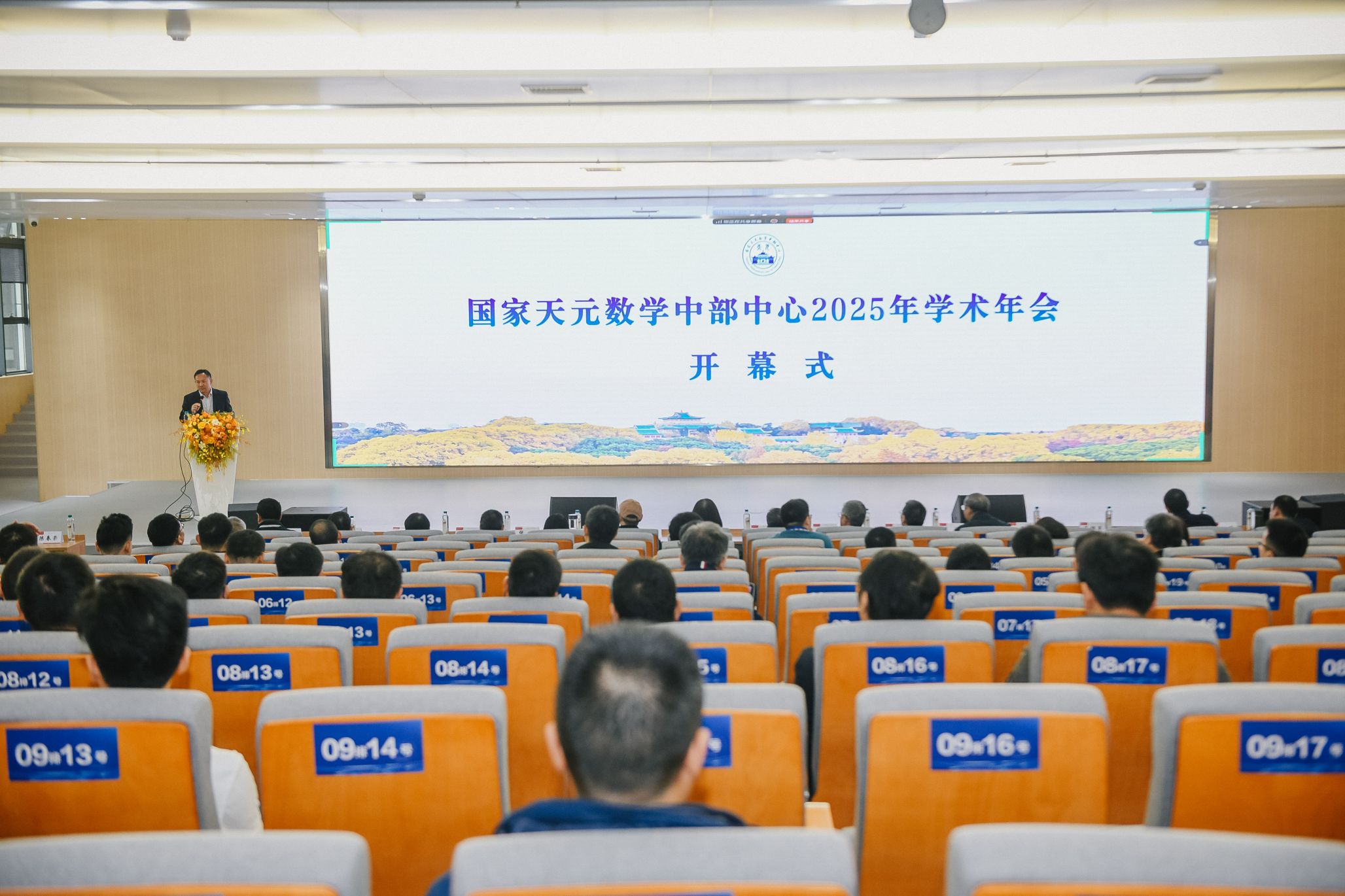
In his opening address, Academician Zhang Pingwen, President of Wuhan University, extended a warm welcome to the attendees. He emphasized that Wuhan University would fully support the Center's development and pointed out that the Center should deepen exchanges and cooperation with the French mathematical community, helping the central region's mathematical disciplines achieve breakthrough development and narrow the gap with mathematically advanced regions domestically and internationally. Zhang Pingwen proposed that the rise of Chinese mathematics requires "multiple points of blossoming." The central region should not only actively recruit high-level talents but also focus on building "peaks" in mathematics, forming a disciplinary development path with regional characteristics.
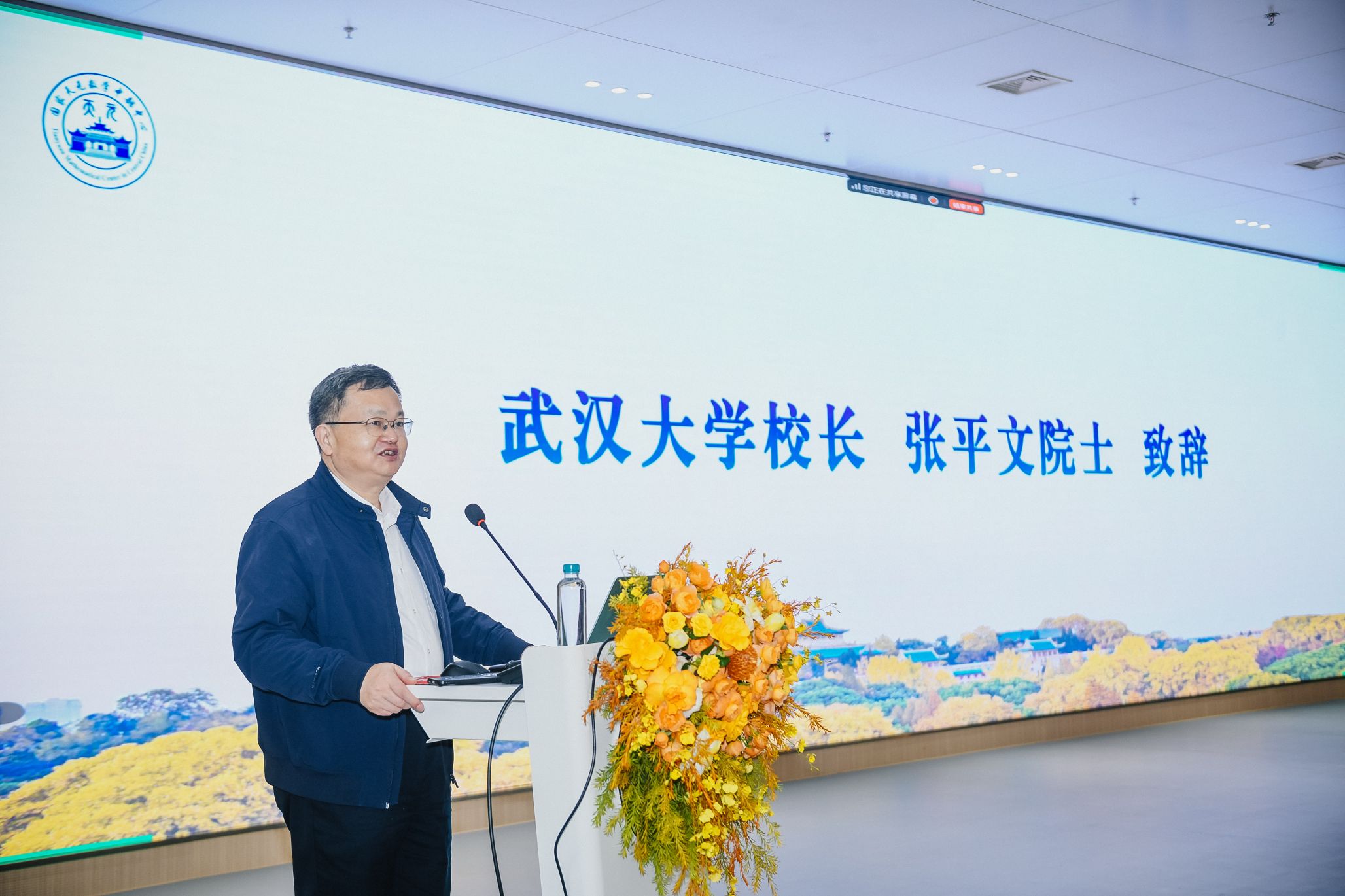
Tian Gang, Academician and Chair of the Center's Academic Committee, highlighted Wuhan's significance as a key higher education hub in China, with its concentration of top-tier universities contributing substantially to the country's scientific and educational endeavors. Covering seven provinces in Central China, the Center leverages the cluster advantages of 985 universities in the region and is expected to continue playing a leading role in mathematical research, talent cultivation, and educational innovation.
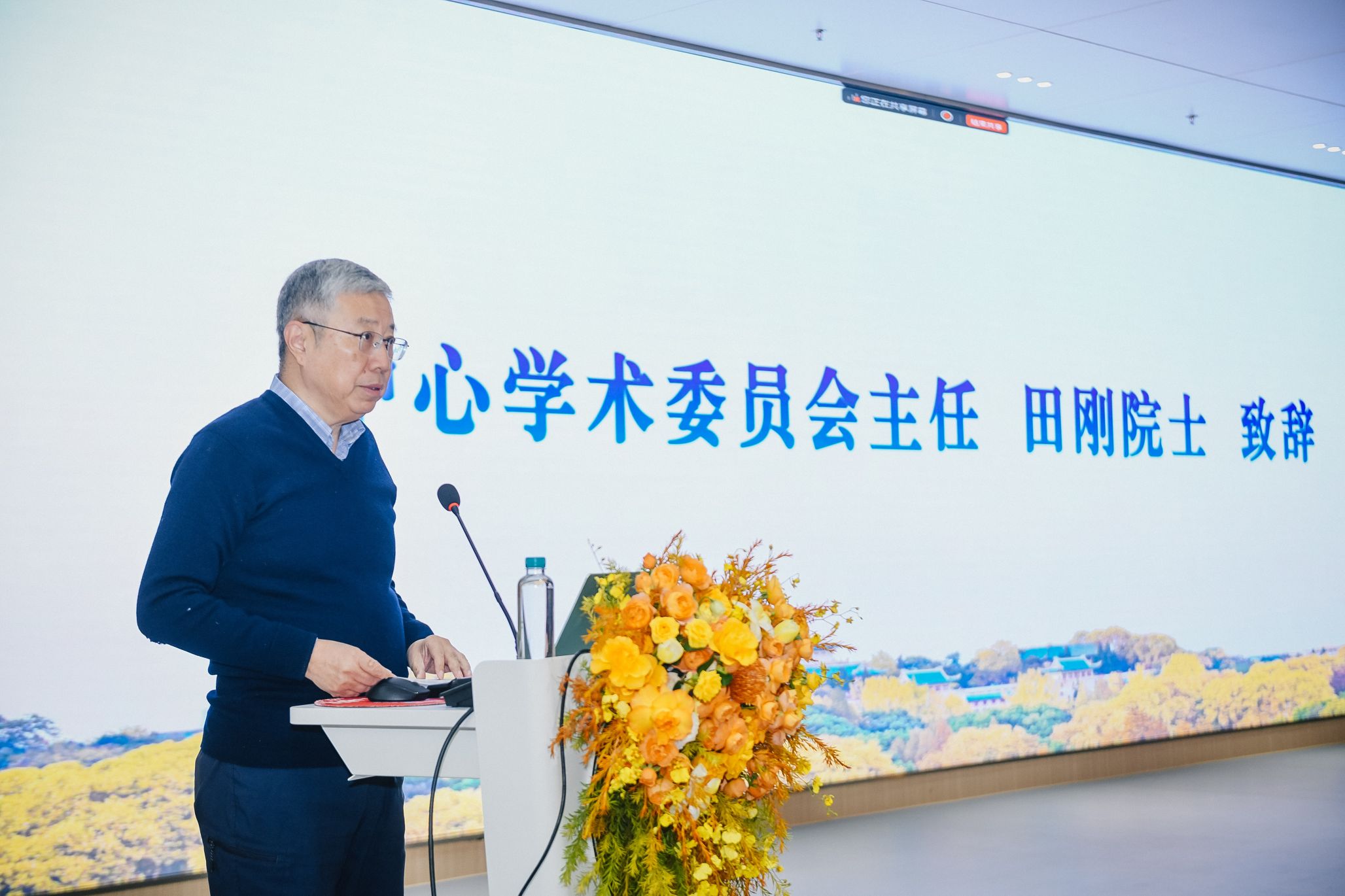
Zhao Guiping, Director of the Mathematics Division of the National Natural Science Foundation of China (NSFC), clarified the Center's developmental positioning: to not only drive the overall development of mathematics in the seven Central China provinces but also to build a nationally influential "mathematics highland" propelling Chinese mathematics to higher levels. Zhao introduced the eight-year development of the Tianyuan Fund, which will prioritize supporting high-end research projects and international collaborations, attracting top overseas scholars, and establishing the Tianyuan platform as a internationally recognized academic brand.
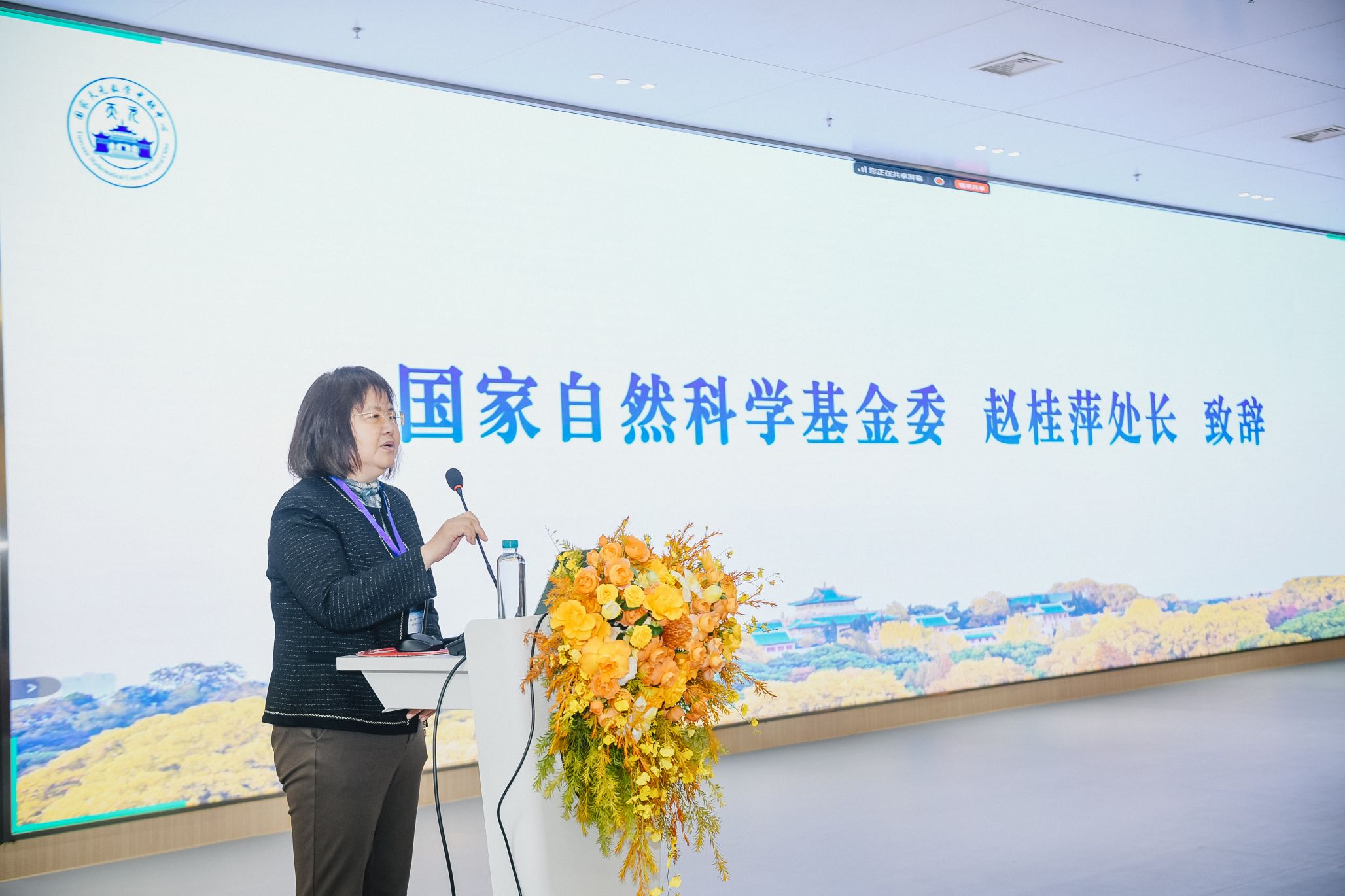
Plenary Distinguished Reports: authoritative insights shaping the future of the discipline
The Plenary Distinguished Reports session was co-chaired by Zhang Ping, Academician of the Chinese Academy of Sciences and Zhou Jian, Professor of Tsinghua University. Professors Hu Jun from Peking University, Fu Baohua from the Academy of Mathematics and Systems Science, Chinese Academy of Sciences, and Yuan Xinyi from Peking University were invited to deliver plenary reports. The three experts provided systematic and profound insights into core issues in their respective fields, with content that combined disciplinary depth with forward-looking perspectives, eliciting enthusiastic responses from the audience. The session was packed, with lively interactions, elevating the academic atmosphere of the annual meeting to its climax.
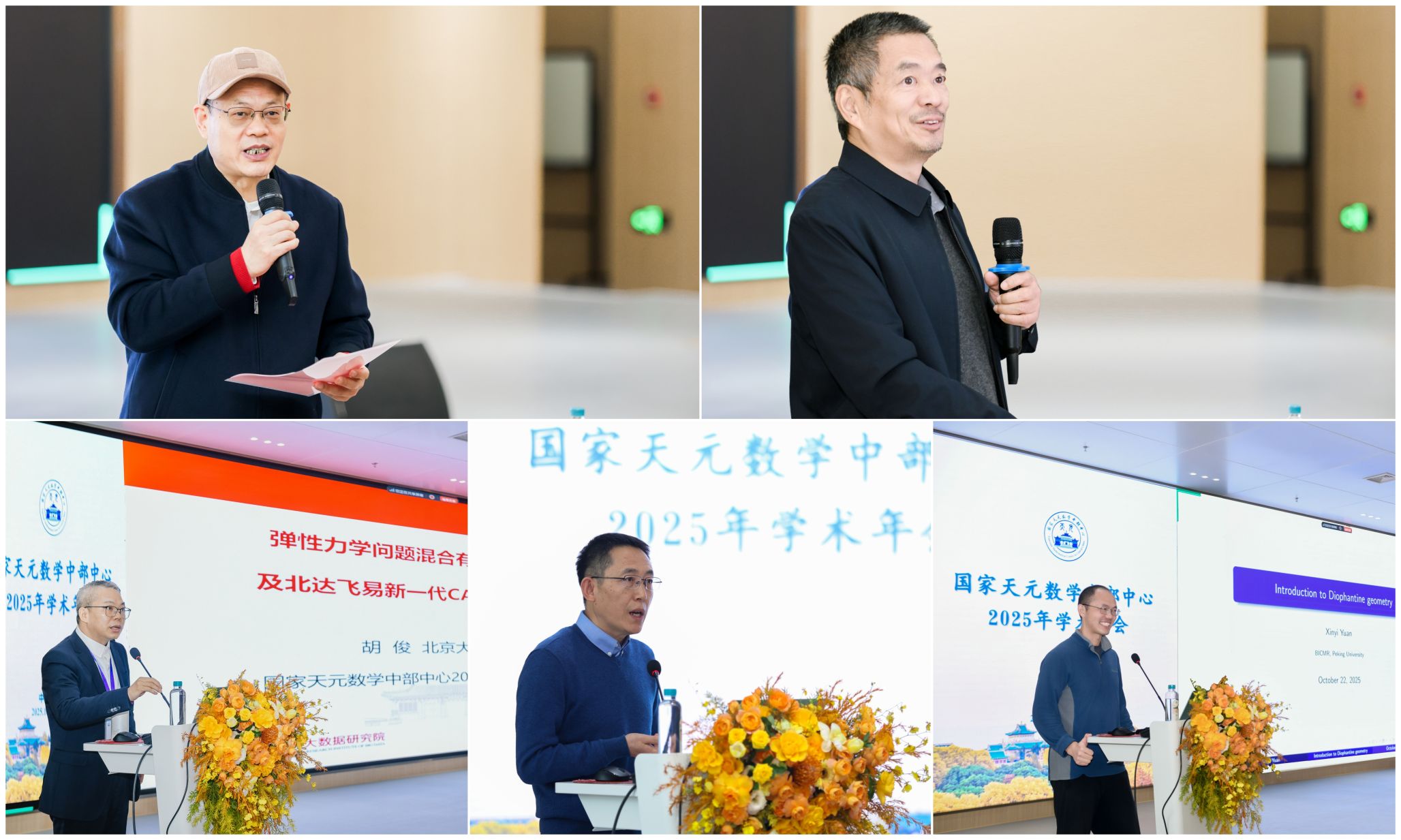
Plenary Invited Reports: focusing on breakthroughs and sharing groundbreaking achievements
In two parallel sessions on pure and applied mathematics, eight experts delivered outstanding reports on their latest research progress. These included Professor Ge Huabin from Renmin University of China, Researcher Li Xiangdong from the Academy of Mathematics and Systems Science, Chinese Academy of Sciences, Professor Shen Yunhe from Jilin University, Professor Yu Wenwu from Southeast University, Professor Wang Kaizhi from Shanghai Jiaotong University, Professor Zhang Kewei from Beijing Normal University, Professor Jiang Kai from Xiangtan University, and Researcher Wang Zhichao from Fudan University. The reports covered theoretical explorations and practical applications, offering attendees a comprehensive academic feast with both breadth and depth.
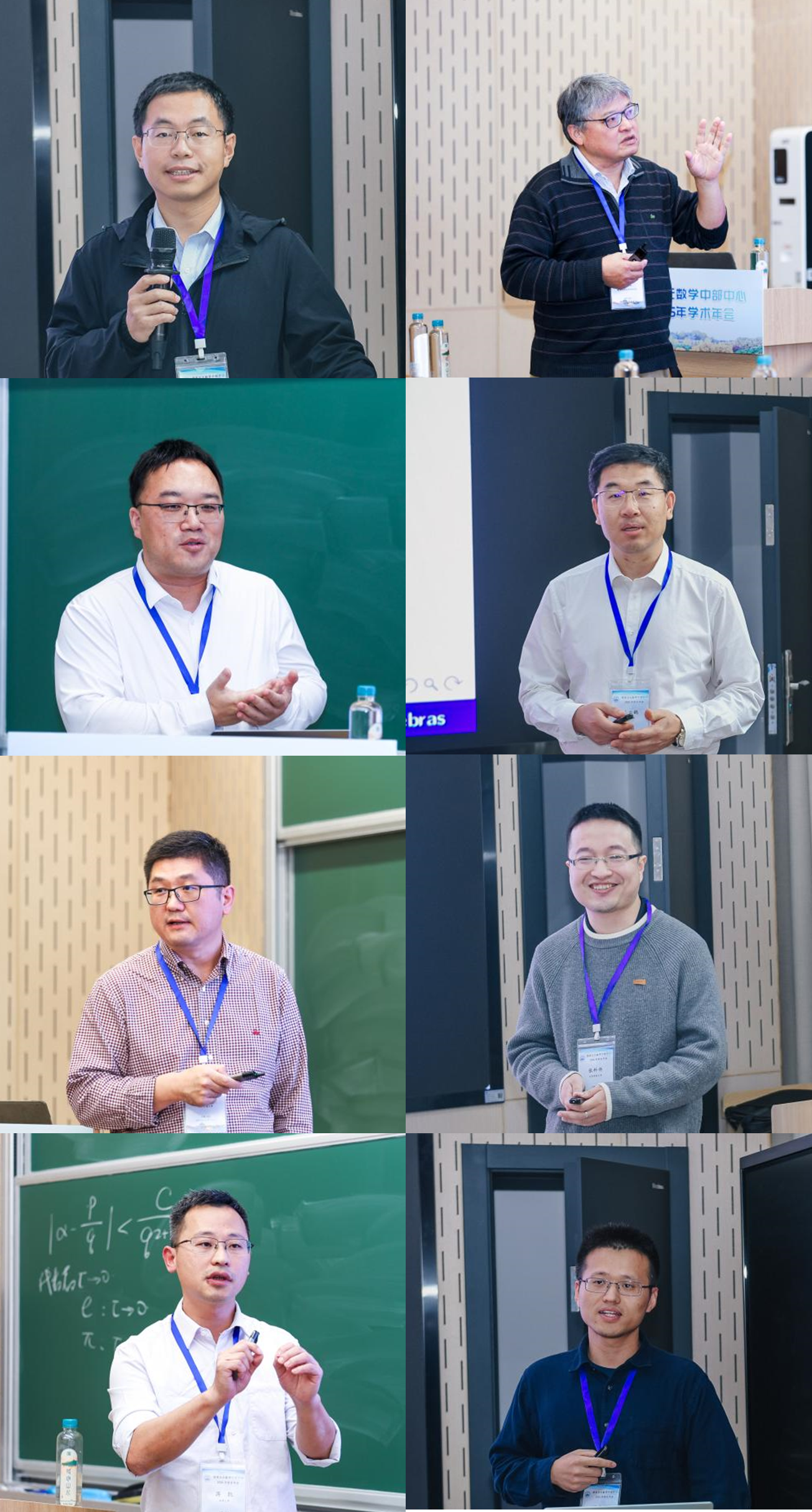
Young Scholars Forum: building talent bridges and stimulating innovation
The Young Scholars Forum, meticulously designed for this annual meeting, featured four sub-sessions focusing on pure and applied mathematics, providing a high-quality academic platform for 42 outstanding young scholars from both domestic and international institutions. The scholars engaged in in-depth discussions on cutting-edge topics, showcasing the research vitality and innovative potential of young talent in Central China.
Innovatively, the forum included a talent matching session, facilitating precise connections between young scholars with job-seeking intentions and universities in Central China. Representatives from institutions such as Wuhan University, Huazhong University of Science and Technology, and Central South University held intensive discussions with several outstanding postdoctoral candidates, resulting in preliminary recruitment intentions. This initiative not only provided a stage for young scholars to present their academic achievements but also created an efficient pathway for talent recruitment in Central China.
Through this forum, a group of promising young scholars established substantive connections with universities in Central China, laying a solid foundation for optimizing regional talent distribution and strengthening research team development. The successful organization of the forum demonstrated Central China's high regard for young talent and its open-mindedness, further enhancing regional talent cohesion and attracting more mathematical talents to choose and settle in Central China, collectively contributing to high-level research platform development.
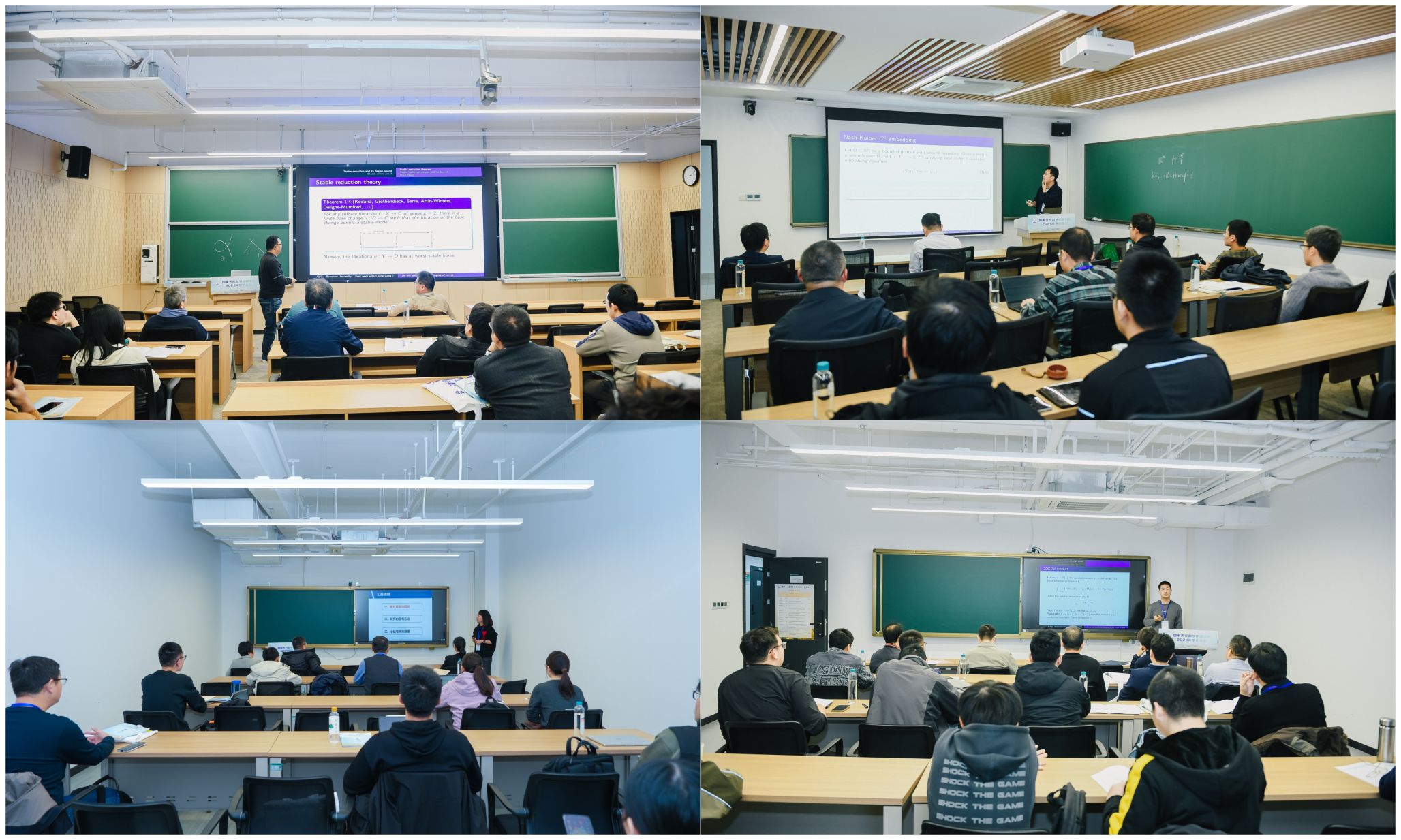
The annual conference concluded successfully amidst a strong academic atmosphere. This conference systematically showcased the latest progress in both fundamental theory and practical application within the mathematical sciences. Through multiple high-level reports, parallel session discussions, and exchange activities, it effectively promoted the deep integration and sharing of academic resources. It is particularly worth mentioning that the setup of the Young Scholars Forum provided an important vehicle for introducing young talent and stimulating research vitality in the central region, injecting new momentum into the development of regional mathematical disciplines. In the future, the Center will continue to leverage its platform advantages, gather wisdom, and pool strength to make greater contributions to the sustained development of China's mathematical enterprise.
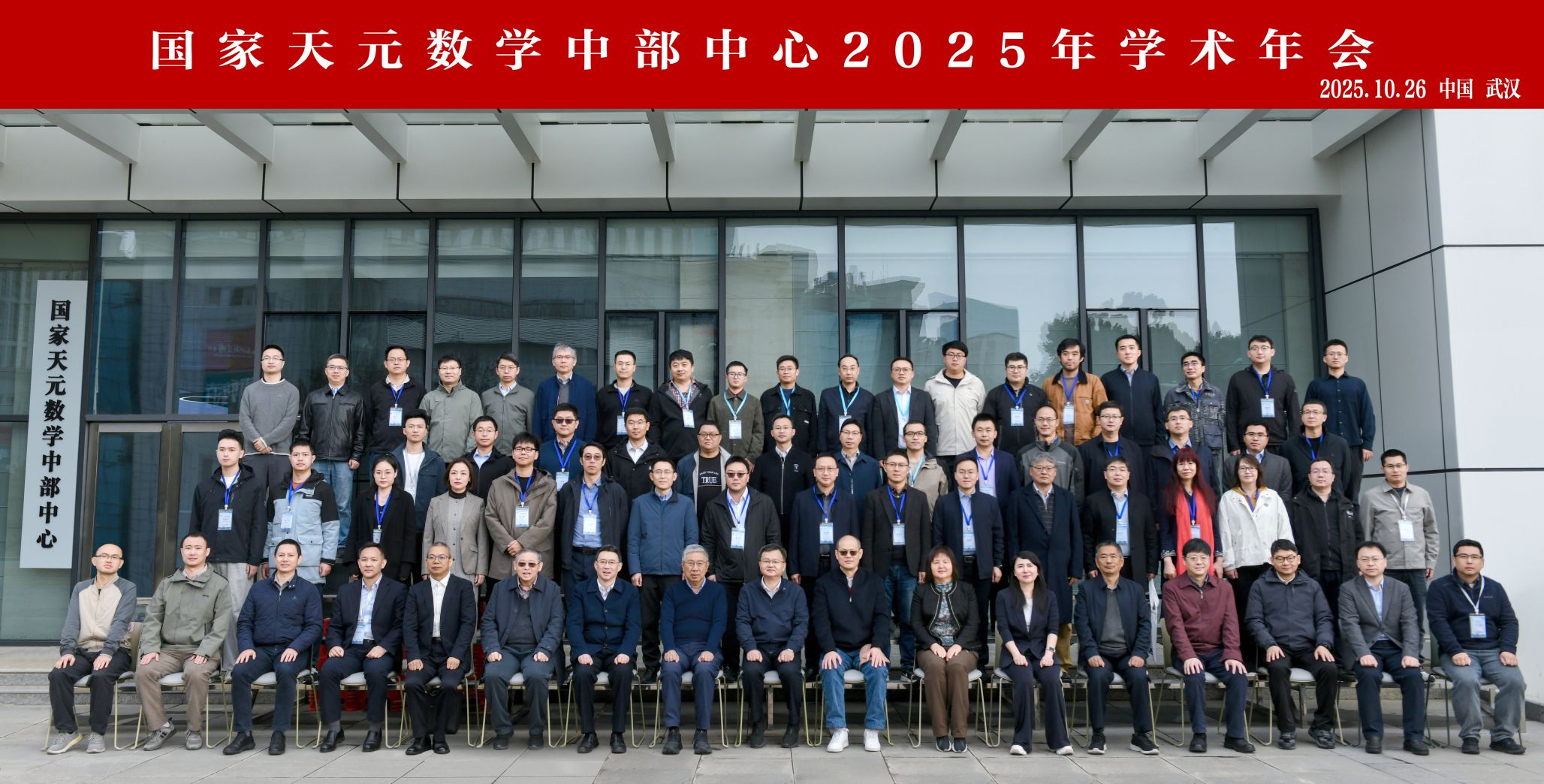
(Correspondents: Xiao Yuxia, Tang Lingling, Li Bo Photography provided by the Conference Organizing Committee)

